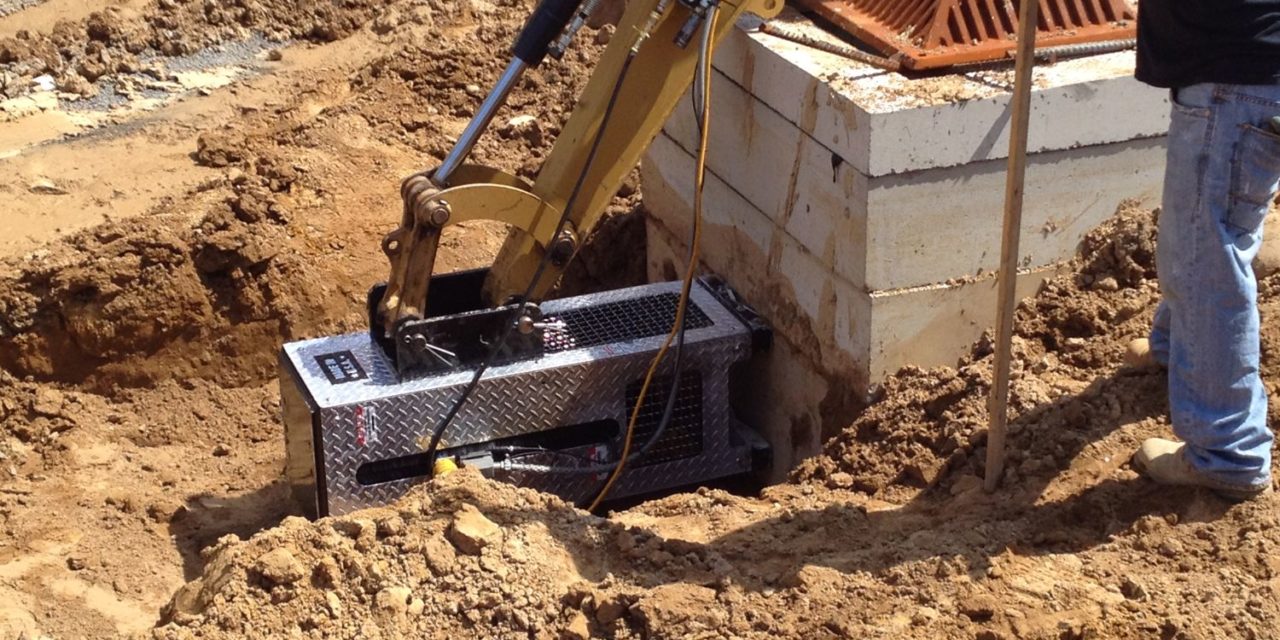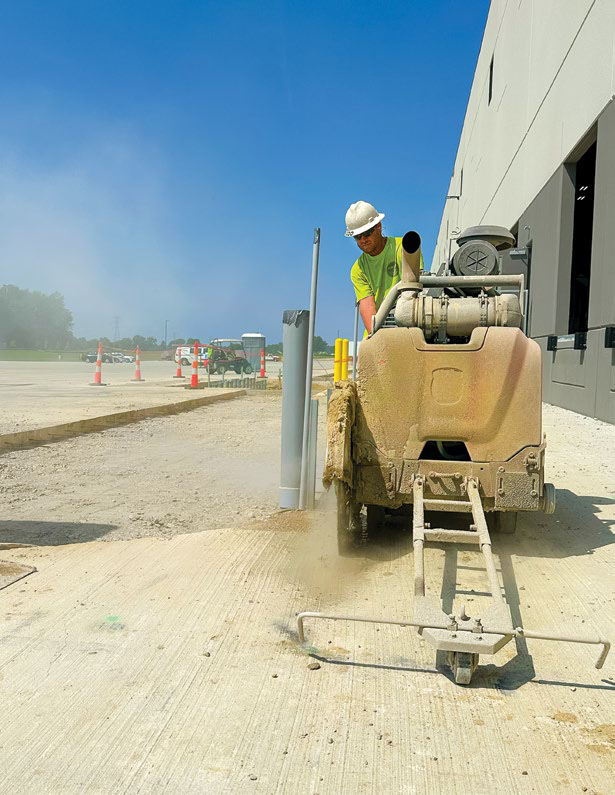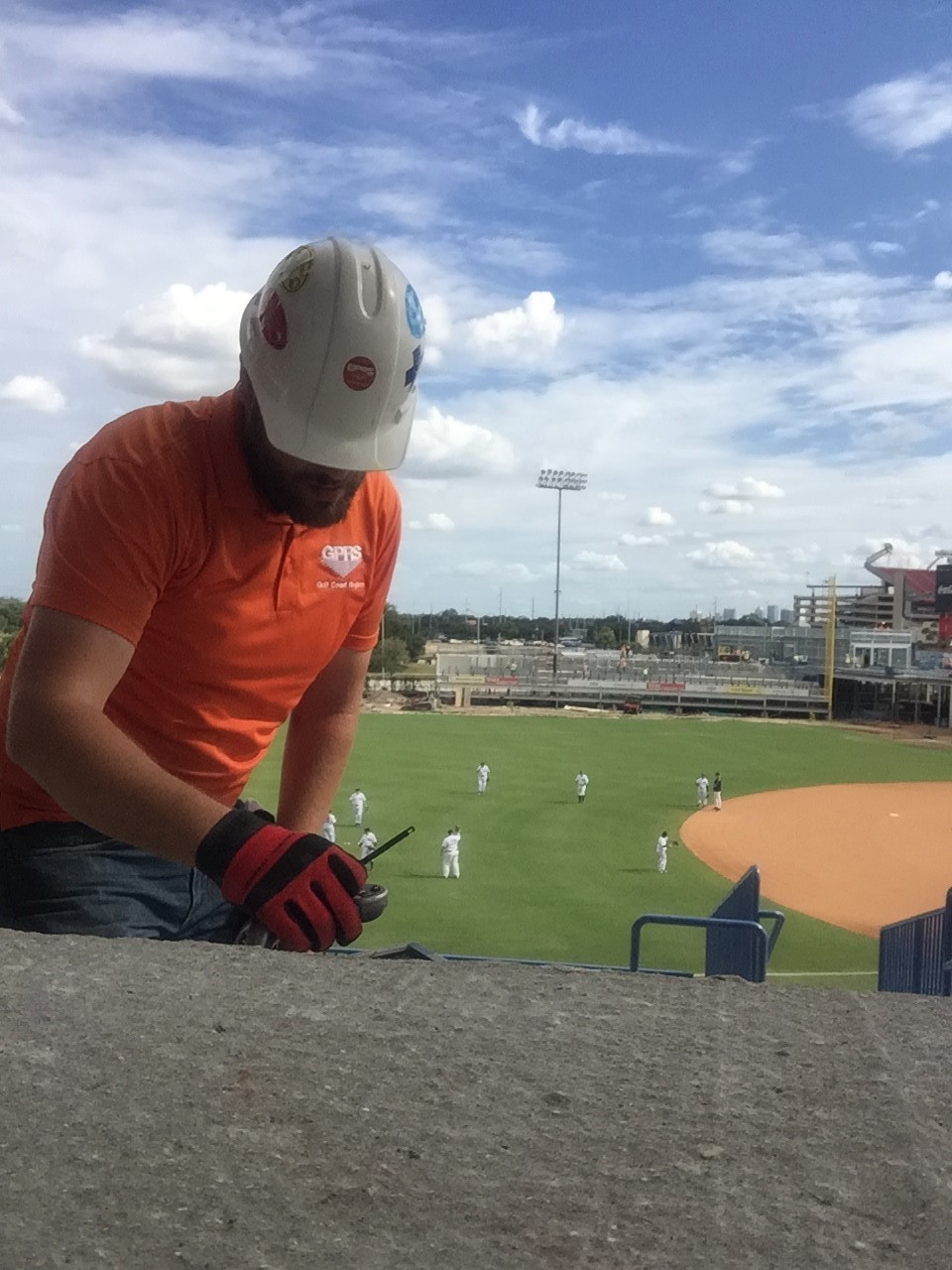
Home Advantage

Innovative Core Drilling Machine Aids Housing Construction Project

A portable coring system was engineered and attached to an excavator.
When faced with the challenge of creating over 900 concrete openings for a new housing development in Philadelphia, Pennsylvania, a cutting contractor came up with a piece of equipment that could complete the work without placing operators in areas with limited access.
Site utility contractor MECO Constructors, Inc. of Bensalem, Pennsylvania was awarded the contract to perform all site work associated with a new 55+ housing community called The Arbours at Eagle Pointe. The site is over 50 acres and consists of over 400 homes, condominiums, a community center and more than 15 acres of open space. The community was built on the site of an old psychiatric hospital, so updates to some of the existing infrastructure was part of the work.
The major challenge associated with the project was the installation of a new storm, sanitary and domestic water infrastructure system to accommodate the proposed housing development. The new infrastructure was designed to accommodate the Philadelphia Water Department’s “piggyback” system. In this system the sanitary sewer, typically a vitrified clay pipe, is installed first and encased in concrete. Then the storm sewer piping, which can be various sizes of reinforced concrete pipe, is installed on top of the previously installed sanitary piping. The storm piping is then cradled in concrete to approximately the spring line of the installed storm water piping.
The City of Philadelphia required that any holes placed in its sewer system for lateral connections be cored holes. To make use of the existing underground lines and install the new piggyback system, over 900 holes were required measuring between 6 and 14 inches in diameter through piping between 8 and 15 inches thick. Each of the 400 new homes needed at least two cored connections—one for sanitary and one for storm—plus approximately 25 acres of common ground on the site had over 100 area drains, not including roadway inlets. These drains were also connected to the new storm system. In all cases, the holes were made in deep trenches with limited access and through thick concrete encased piping. The site utility contractor enlisted the help of its subsidiary company and CSDA member EXCO, Inc. to perform the core drilling work.
“With so many holes to core drill in deep excavations, and into sewers encased in concrete, I calculated that ‘traditional’ coring methods would have more associated costs and there were some concerns about operator safety,” explained Fred Engel, Jr., project manager of EXCO, inc. “At each drilling location we would have needed a crew to lower all the necessary tools and equipment into the trench, then there would be setup time to anchor the base unit to the concrete sewer and make adjustments. This is all before we would lower and mount the drill motor on the stand and attach a power source. We would then, of course, have had to reverse the whole process once the hole was made before moving on to the next location. It was at this point that I began working on a new coring system that was less labor intensive.”

Holes in concrete piping measuring 6 to 14 inches in diameter provided connection points for new sewer and storm water systems.
What Engel and his partner Ed Lounsberry, the company’s master mechanic, came up with was a portable, anchorless core drilling system that could be attached to a demolition robot or excavator. This system was named the KwikCore. Utilizing this new system, the contractor was able to greatly reduce the anticipated labor-intensive setup, breakdown and standby times for the work.
Powered by standard 115-volt electrical power, the system was connected by an umbilical cord to a remote control module with a connection included for a water supply to lubricate and cool the core bit. The system had a built-in stabilizer so that the unit could be oriented perpendicular to the drilling surface. It was designed to drill holes up to 15 inches in diameter up to 18 inches deep.
The system was attached to arm of an excavator and positioned at the marked drilling location, with the excavator providing stability during the coring process. By having the system attached in this way, the work was done a safe distance from the contractor’s team and other site personnel. This reduced the chances of operators being injured by debris and decreased exposure to silica.

The machine operator created over 30 core holes per shift.
Using the KwikCore system, one operator was able to create over 30 core holes every eight-hour shift. The anchorless core drilling attachment helped the cutting contractor complete this particular phase of the overall project well within the allotted schedule, which was calculated to be close to $1 million worth of savings in the budget.
“We spent a lot of time developing this idea, so were thrilled when the system came through for us on this large project,” added Engel. “The coring work was completed without having to literally send our employees into the trenches and drill in a difficult environment with several potential hazards.”
EXCO, Inc. has gone on to utilize the KwikCore system on a number of other projects and has obtained the patent for it. This innovative design gave this cutting contractor the home advantage on a challenging job.
Company Profile
EXCO, Inc. has been a CSDA member since 2012 and is based in Bensalem, Pennsylvania, servicing the entire Philadelphia Tri-State area The company has been in business for 43 years and has over 150 employees and 30 trucks. EXCO, Inc. offers the concrete cutting services of core drilling, flat sawing, selective demolition and is a full service site utility contractor.
Resources
General Contractor:
MECO Constrcutors, Inc.
Sawing and Drilling Contractor:
EXCO, Inc.
Bensalem, Pennsylvania
Phone: 855-945-2673
Email: fengel@excokwikcore.com
Website: www.excokwikcore.com
Methods Used: Core Drilling













